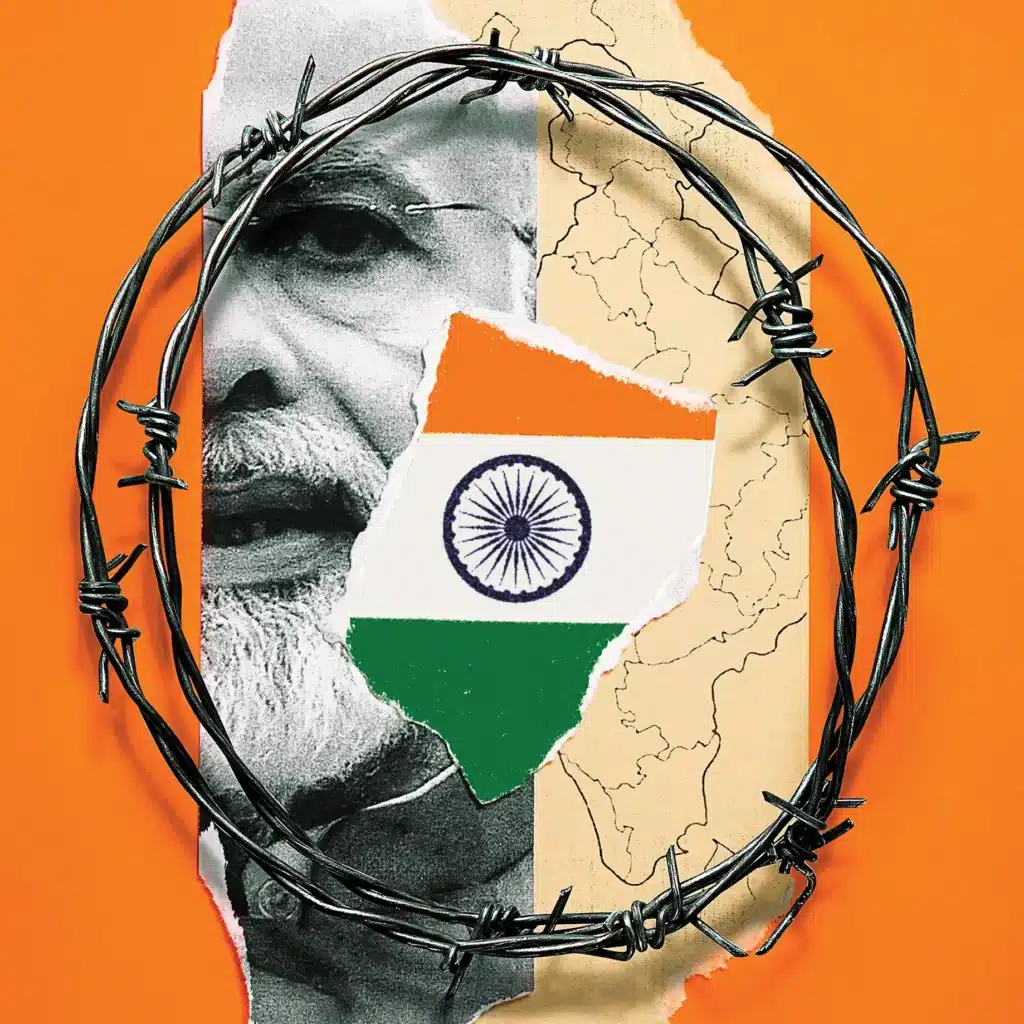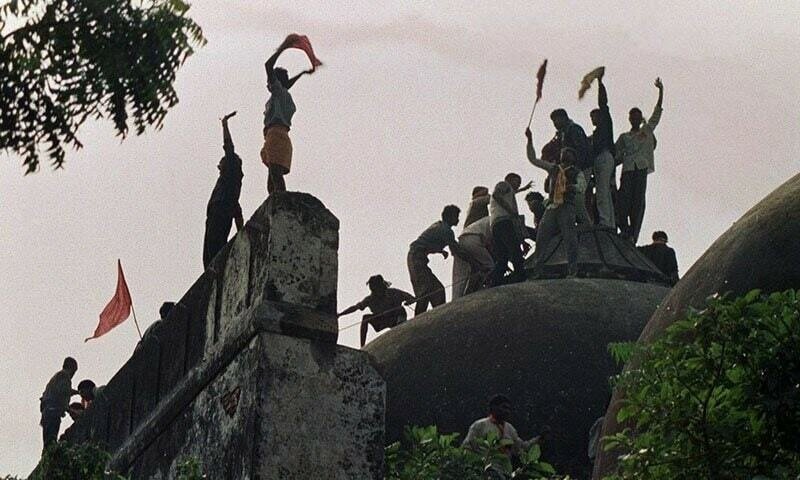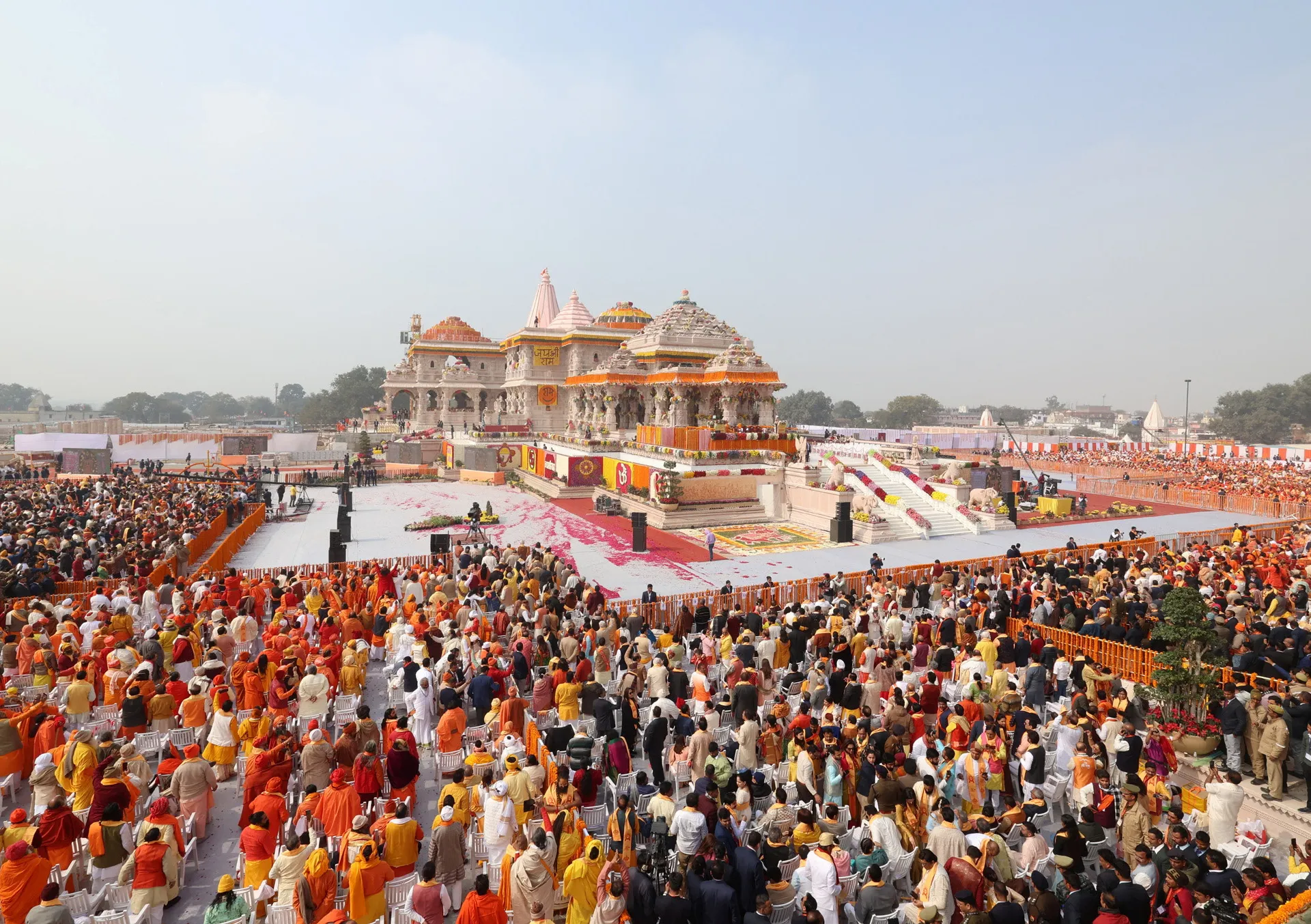The glamour of Ayodhya’s Ram Mandir inauguration snubbed a trail of injustice and violence that intertwined with the rise of the political wing of the Hindu majoritarian collective, Rashtriya Swayamsevak Sangh (RSS). It took the Bharatiya Janata Party (BJP) nearly two decades to claim political space for the extreme narrative of a Hindu-only state, or what they call Ram Rajya. These two decades can be seen both as a period of resilience and downgrade.
Resilience, in terms of the secular sentiments keeping the balance between pluralism and the bigger, larger push towards Hindu majoritarianism. Take for example the verdict of India’s Supreme Court after the demolition of the Babri Masjid in 1992. The verdict acknowledged that politics and religion must stay apart.
Now comparing this verdict with 2019, when the same highest seat of judiciary allocated a separate space for a Masjid and called the claim of Mandir in the exact spot where Babri Masjid stood as legitimate, the downgrade becomes apparent. Unfortunately for the followers of other religions in India, this downgrade was never peaceful. Each passing day after the ruins of Babri Masjid would make the hearts of Muslims bleed, the hands that destroyed the mosque were emboldened.

2014 was the year of climax when the BJP finally had the political power it tried so hard to harness from the streets in those two decades. The downgrade still wasn’t complete; it was perhaps a beginning where political power would justify every act of vigilante violence.
Babri Masjid being the first, from here on, the destruction of mosques started turning into numbers.
Sometimes the excuse was a road widening project and sometimes, a legal petition questioning the construction of age-old mosques, until the Masjid-Mandir controversies came to be known as one of the many campaigns that were and are some serious indicators of an ever-declining rights’ trajectory of religious minorities in India.
But the symbolism of Ram Mandir’s inauguration is much more than Modi gearing up for a third consecutive term in power. No doubt that Modi’s politics has centred on three canon events – the abrogation of Kashmir’s special status, the Citizenship Amendment Act, and finally the $220m mega construction of the Ram Mandir. The common denominator in all these three is religion.
From ‘Kashmir cannot be an autonomous Muslim majority state’ to ‘all Hindus from neighbouring countries can take refuge and ultimately citizenship of India’ to ‘we have reclaimed and fought our way back to the birth place of Rama,’ Modi’s BJP have stalled itself as the only party in India that manifests the aspirations of a Greater Hindu India (read Bharat).

Modi’s political campaign seems to be in good spirits since the inauguration.
Also Read: From Nehru to Modi
But in erasing a religious symbol to erect another one, secular India has died down under the ruins of Babri Masjid.
Not just that, political normalization of religiously-motivated violence has turned India into a dangerous country. The Muslim world turned a blind eye to the grand celebration in India on 22 January 2024, because it is convenient to overlook this event as India’s internal matter. Lesser does the world recognize that the drive to demolish a mosque can also manifest into a desire to bulldoze the holiest sites of all other religions, only to erect Mandirs.






